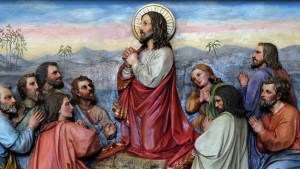Catholic bishops in Canada are voicing disagreement with Quebec’s Premier, François Legault, who recently made remarks indicating his support for a ban on public prayer. While the comments were aimed at the province’s Islamic community, the bishops argued that it’s a “slippery slope” towards a fundamental rights disaster.
According to the Canadian Press, Legault opened his comments by explaining that he wanted to send a “very clear message to Islamists,” before suggesting that he would like to ban prayer in parks and city streets. Under Legault’s leadership, the Quebec government has pledged to pursue legislation to strengthen secularism in schools, which has been most concerned with Muslim prayer in public schools.
The premier went on to say that his administration was looking into whether or not it could ban public prayer, and if the ban could use clauses to prevent constitutional challenges. The notion led federal Immigration Minister Marc Miller to comment on the importance of respecting people’s religious freedom.
Miller pointed to the Catholic tradition of pilgrims climbing the steps of St. Joseph’s Oratory in Montreal on their knees and inquired as to whether or not this expression of faith would be banned as well.
Bishop Martin Laliberté, president of the assembly of Catholic bishops of Quebec, said that he was “stunned” by the premier’s comments. He argued that a ban on public prayer would impact a variety of activities of many faith groups. Noting that his parish often holds picnics in the local park, at which they pray before they eat:
“If we pray before the meal, are we going to be suspect?” Bishop Laliberté asked. “Are we going to be breaking the law because we’re praying?”
The bishop went on to inquire as to what actually constitutes a prayer in the government’s eyes, noting that many people practice yoga and tai chi in parks, both with spiritual roots. “So is the person practicing a religious act or just a physical activity?” he said. “It’s a slippery slope toward the disrespect of the fundamental rights of individuals.”
Even the secularists seem to consider Legault’s comments to be on the extreme side. Daniel Baril, president of the Mouvement laïque québécois – a group that promotes secularism – noted that even his people don’t object to planned public religious events, like Good Friday processions. Baril explained that the secularists were opposed to sudden or “spontaneous” events that blocked streets or prevented the public at large from using public spaces.




